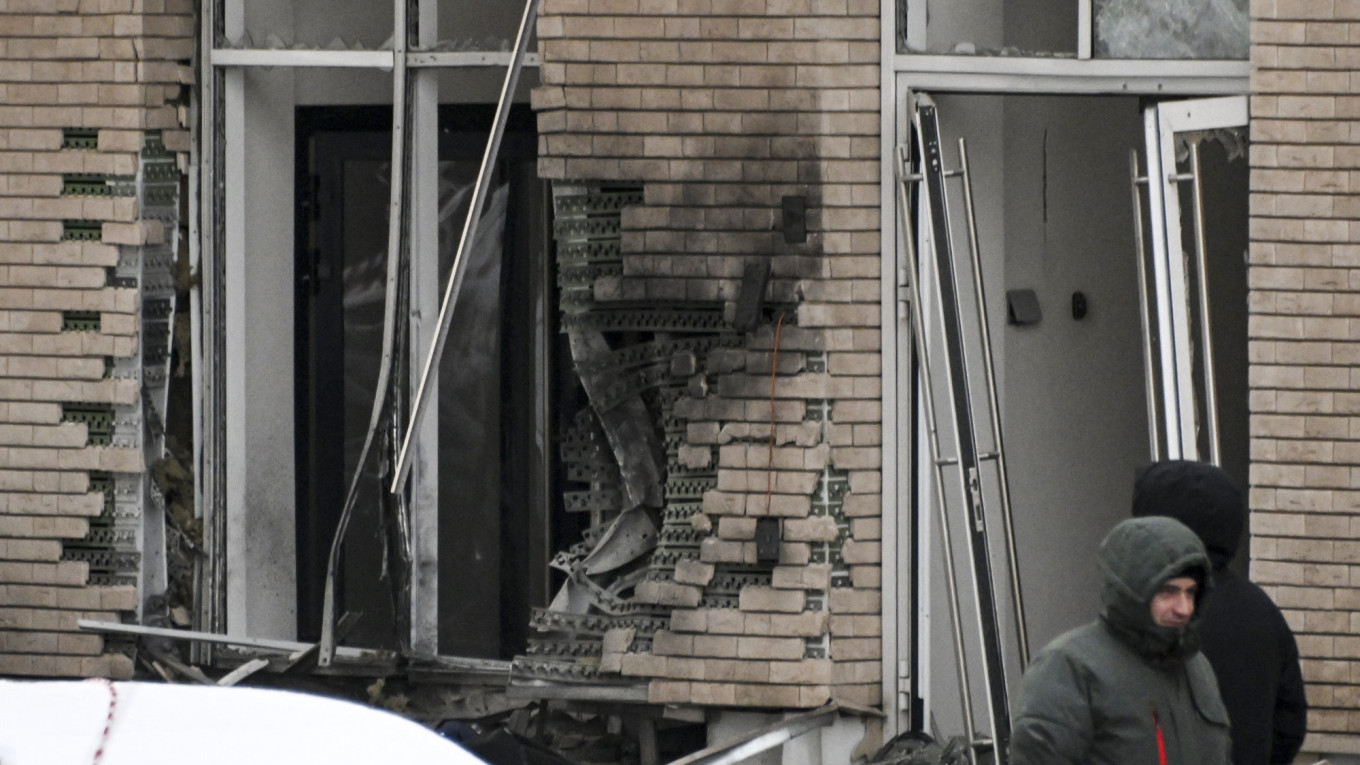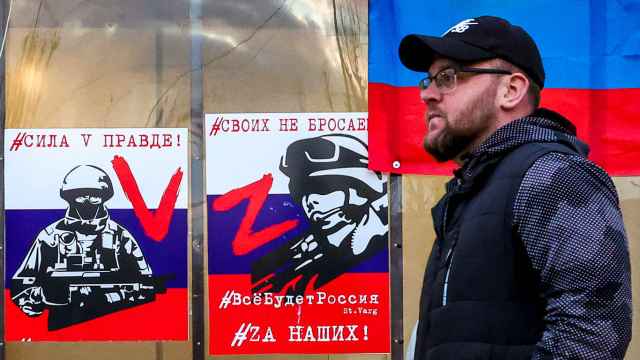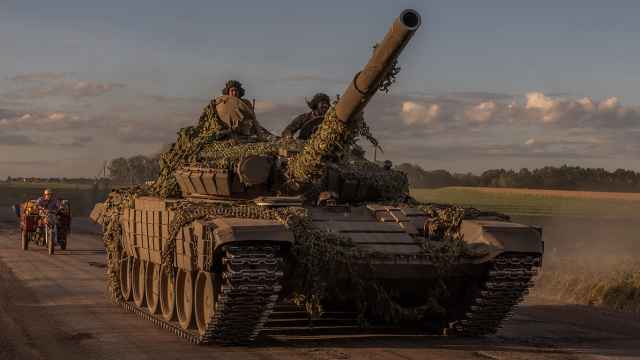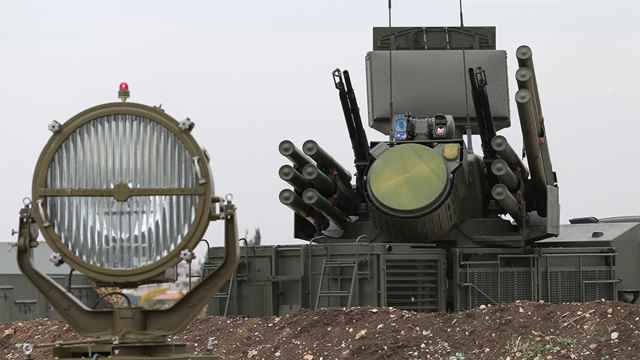The head of the Russian army's chemical weapons division was killed Tuesday in a brazen Moscow attack claimed by Kyiv, the most senior military figure assassinated in Russia yet as the Kremlin's campaign in Ukraine drags on.
Igor Kirillov was killed along with an assistant when an explosive device attached to a scooter went off outside an apartment building in southeastern Moscow, Russian and Ukrainian officials said.
The attack took place in a residential area in the capital a day after President Vladimir Putin boasted of Russian troop successes in Ukraine, nearly three years on from the Kremlin's invasion of its pro-Western neighbor.
Kirillov, 54, was the head of the Russian army's chemical, biological and radiological weapons unit and was recently sanctioned by Britain over the alleged use of chemical weapons in Ukraine.
A source in Ukraine's SBU security service told AFP it was behind the early morning explosion in what it called a "special operation," calling Kirillov a "war criminal."
Russia's Investigative Committee said an "explosive device planted in a scooter parked near the entrance of a residential building was activated on the morning of December 17 on Ryazansky Prospekt in Moscow."
The blast shattered several windows of the building and severely damaged the front door, according to an AFP reporter on the scene.
Russian authorities said they were probing the attack as "terrorism."
But the SBU source told AFP: "Kirillov was a war criminal and an absolutely legitimate target, as he gave orders to use banned chemical weapons against the Ukrainian military."
"Such an inglorious end awaits all those who kill Ukrainians. Retribution for war crimes is inevitable," the source said.
Western allies 'accomplices'
Russian Foreign Ministry spokeswoman Maria Zakharova accused Ukraine's allies of approving "war crimes" by remaining silent on the killing or expressing support for such attacks.
"All those who welcome terrorist attacks or deliberately hush them up are accomplices," she said on social media, accusing the West of increasing "approval for war crimes by fighters for the Kyiv regime."
Ex-President Dmitry Medvedev said Russia must do everything it could to "destroy" Ukraine's political and military leadership who ordered the attack.
AFP was unable to verify video footage shared by an SBU source that showed a scooter exploding seconds after two men left a residential building.
Residents said they had initially assumed the loud noise they heard came from a nearby construction site.
Student Mikhail Mashkov, who lives in the building next door, said he was woken up by a "very loud explosion noise," thinking "something fell at the construction site", before looking outside.
There have been assassinations on Russian territory before but such attacks in Moscow — where fighting in Ukraine often feels distant — are rare.
Previous targets included nationalist writer Daria Dugina — killed in a car bomb attack outside Moscow in 2022 — and pro-war military correspondent Vladlen Tatarsky, who was blown up in a St. Petersburg cafe in 2023.
Kirillov, who had been in his role since 2017, is the most senior Russian military official to be killed.
Kyiv had a day earlier charged Kirillov in absentia on allegations of committing "war crimes" against Ukraine.
The SBU on Monday said it had documented more than 4,800 cases of Russia using chemical munitions since the start of the conflict in February 2022.
'Won't mourn'
Britain and the United States have accused Russia of using the toxic agent chloropicrin, a choking agent used widely in World War I, in violation of the Chemical Weapons Convention (CWC).
The U.K. government in October imposed sanctions on Kirillov and his unit "for helping deploy these barbaric weapons," charges that Moscow has denied.
On Tuesday a spokesman for British Prime Minister Keir Starmer said London was "not going to mourn" Kirillov's death, saying he had "imposed suffering and death on the Ukrainian people."
A U.S. official said Tuesday on condition of anonymity that "the U.S. was not aware of the operation in advance and we do not support or enable these kinds of activities."
White House spokesman John Kirby earlier told CNN it was "without question" that the Russian military had "used chemical weapons and other agents to kill, to maim, to hurt the Ukrainian people and Ukrainian soldiers."
Russia has said it no longer possesses a military chemical arsenal.
In lengthy televised briefings, Kirillov had regularly accused Kyiv and the West of running secret networks of bio-labs that were developing banned chemical agents across Ukraine — claims rejected by the West and independent fact-checking organizations.
A Message from The Moscow Times:
Dear readers,
We are facing unprecedented challenges. Russia's Prosecutor General's Office has designated The Moscow Times as an "undesirable" organization, criminalizing our work and putting our staff at risk of prosecution. This follows our earlier unjust labeling as a "foreign agent."
These actions are direct attempts to silence independent journalism in Russia. The authorities claim our work "discredits the decisions of the Russian leadership." We see things differently: we strive to provide accurate, unbiased reporting on Russia.
We, the journalists of The Moscow Times, refuse to be silenced. But to continue our work, we need your help.
Your support, no matter how small, makes a world of difference. If you can, please support us monthly starting from just $2. It's quick to set up, and every contribution makes a significant impact.
By supporting The Moscow Times, you're defending open, independent journalism in the face of repression. Thank you for standing with us.
Remind me later.






